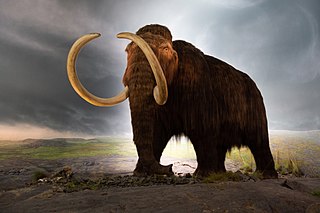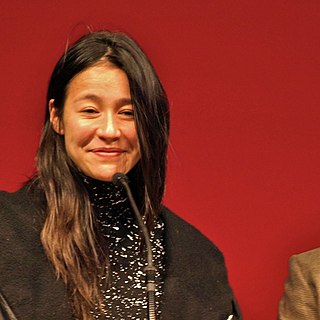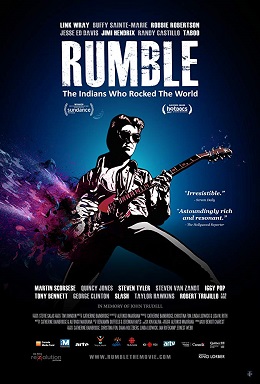
Christian Frei is a Swiss filmmaker and film producer. He is mostly known for his films War Photographer (2001), The Giant Buddhas (2005) and Space Tourists (2009).

Ondi Doane Timoner is an American filmmaker and the founder and chief executive officer of Interloper Films, a production company located in Pasadena, California.
Shimon Dotan is an Israeli film director, screenwriter, and producer.

The woolly mammoth is an extinct species of mammoth that lived during the Pleistocene until its extinction in the Holocene epoch. It was one of the last in a line of mammoth species, beginning with the African Mammuthus subplanifrons in the early Pliocene. The woolly mammoth began to diverge from the steppe mammoth about 800,000 years ago in East Asia. Its closest extant relative is the Asian elephant. The Columbian mammoth lived alongside the woolly mammoth in North America, and DNA studies show that the two hybridised with each other.
The Jarkov Mammoth, is a woolly mammoth specimen discovered on the Taymyr Peninsula of Siberia by a nine-year-old boy in 1997. This particular mammoth is estimated to have lived about 20,000 years ago. It is likely to be male and probably died at age 47.

The existence of frozen soft-tissue remains and DNA of woolly mammoths has led to the possibility that the species could be regenerated by scientific means. In 2003 the Pyrenean ibex was briefly revived, giving credence to the idea that the mammoth could be successfully revived. As of today, several methods have been proposed to achieve this goal, including cloning, artificial insemination, and genome editing. Whether it is ethical to create a live mammoth is not universally agreed on.

Space Tourists is a feature-length documentary of the Swiss director Christian Frei. The film had its premiere at the Zurich Film Festival in 2009 and has won the "World Cinema Directing Award" at the Sundance Film Festival in 2010.

Yuka is the best-preserved woolly mammoth carcass ever found. It was discovered by local Siberian tusk hunters in August 2010. They turned it over to local scientists, who made an initial assessment of the carcass in 2012. It is displayed in Moscow.
Tchavdar Georgiev is an Emmy award winning writer, producer, director and editor of fiction and non-fiction films, TV commercials and television programs both in the USA and abroad.

The 2014 Sundance Film Festival took place from January 16, 2014 until January 26, 2014 in Park City, Utah, United States, with screenings in Salt Lake City, Ogden, and Sundance Resort in Utah. The festival opened with Whiplash directed by Damien Chazelle and closed with musical drama Rudderless directed by William H. Macy.
The Green Film Network is an international association of environmental film festivals and was founded to support the work of international documentary filmmakers and promote films that raise awareness of environmental topics.

Candescent Films is an American film production company that produces and finances documentary and narrative films that explore social issues.

Elizabeth Chai Vasarhelyi is an American documentary filmmaker. She was the director, along with her husband, Jimmy Chin, for the film Free Solo, which won the 2019 Academy Award for Best Documentary Feature. The film profiled Alex Honnold and his free solo climb of El Capitan in June 2017.

Rumble: The Indians Who Rocked The World is a Canadian documentary film directed by Catherine Bainbridge and co-directed by Alfonso Maiorana, released in 2017. The film profiles the impact of Indigenous musicians in Canada and the US on the development of rock music. Artists profiled include Charley Patton, Mildred Bailey, Link Wray, Jesse Ed Davis, Stevie Salas, Buffy Sainte-Marie, Robbie Robertson, Randy Castillo, Jimi Hendrix, Taboo and others. The title of the film is a reference to the pioneering instrumental "Rumble", released in 1958 by the American group Link Wray & His Ray Men. The instrumental piece was very influential on many artists.
The 2018 Sundance Film Festival took place from January 18 to January 28, 2018. The first lineup of competition films was announced on November 29, 2017.

Hale County This Morning, This Evening is a 2018 American documentary film about the lives of black people in Hale County, Alabama. It is directed by RaMell Ross and produced by RaMell Ross, Joslyn Barnes, Su Kim, and is Ross's first nonfiction feature. The documentary is the winner of 2018 Sundance Film Festival award for U.S. Documentary Special Jury Award for Creative Vision, 2018 Gotham Independent Film Award for Best Documentary Feature and the Cinema Eye Honors Outstanding Achievement in Nonfiction Feature Filmmaking. It was nominated for the Academy Award for Best Documentary Feature. After its theatrical run, it aired on the PBS series Independent Lens and eventually won a 2020 Peabody Award.
Evgenia Arbugaeva is a photographer of the Russian Arctic. Having grown up in Yakutsk, she has an empathy with the people living in the far north and the difficult living conditions they experience, and several of her photographic projects have involved them. The National Geographic has funded her to photograph the people and economic changes on Russia's northern coast.

Anote's Ark is a 2018 Canadian documentary film directed by Matthieu Rytz. Profiling the impact of climate change on the island nation of Kiribati, which will be one of the first nations on earth to entirely disappear underwater in the event of a sustained sea level rise, the film tells the stories of the nation's former president Anote Tong, who intensely lobbied the international community to take action on the threat, and of Sermary Tiare, an I-Kiribati woman who decides to protect her family by emigrating to New Zealand.

Ivete Lucas is a filmmaker, documentarian, producer, editor, and director based in Austin, Texas. Her work includes the documentary short films The Curse and the Jubilee, The Send-Off, Roadside Attraction, The Rabbit Hunt, Skip Day, Happiness is a Journey and the documentary feature film Pahokee.














